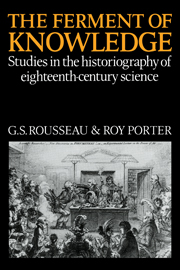4 - Psychology
Published online by Cambridge University Press: 03 May 2010
Summary
Only connect …
(E. M. Forster, Howard's End)In the history of Western medicine, from the school of Salerno to that of Freud, the content and structure of its four principal ingredients - its conception of the nature of man, its technical capacity to do medical research and to give treatment, its sense of religion, and the social structure of medical aid - have changed continually; but the exclusive concern of pathology with the physical side of man's being has not disappeared or changed.
(Pedro L. Entralgo, Mind and Body: Psychosomatic Pathology, 1955)If one poses, for a science such as theoretical physics or organic chemistry, the problem of its relations with the political and economic structure of society, doesn't one pose a problem which is too complicated? Isn't the threshold of possible explanation placed too high? If, on the other hand, one takes a knowledge [savoir] such as psychiatry, won't the question be much easier to resolve, since psychiatry has a low epistemological profile, and since psychiatric practice is tied to a whole series of institutions, immediate economic exigencies and urgent political pressures for social regulation? Cannot the interrelation of effects of knowledge and power be more securely grasped in the case of a science as ‘doubtful’ as psychiatry? It is this same question that I wanted to pose, in The Birth of the Clinic apropos of medicine: it certainly has a much stronger scientific structure than psychiatry, but it is also very deeply involved in the social structures.
- Type
- Chapter
- Information
- The Ferment of KnowledgeStudies in the Historiography of Eighteenth-Century Science, pp. 143 - 210Publisher: Cambridge University PressPrint publication year: 1980
- 9
- Cited by



